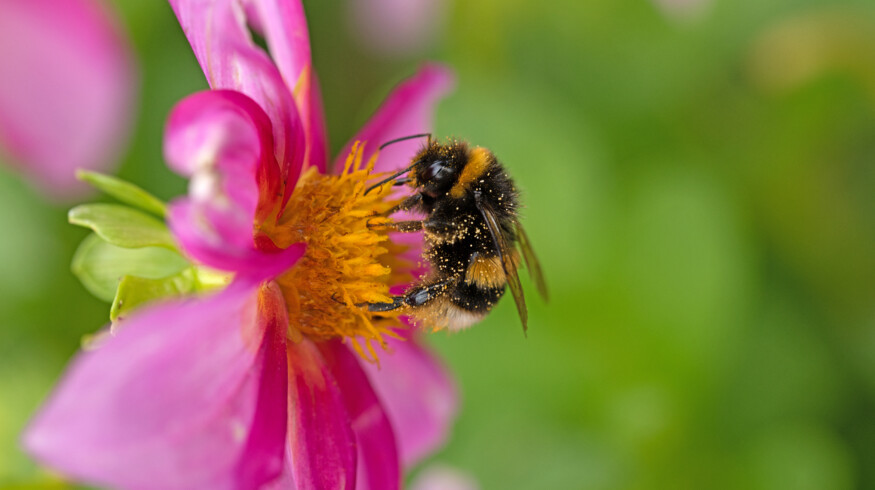UK government targets 10% reduction in pesticide use by 2030

The UK government has announced plans to reduce pesticide use on arable farms by 10% by 2030, aiming to protect bees and other pollinators while promoting sustainable agricultural practices. The long-awaited initiative, delayed since 2018, introduces new monitoring measures and incentives for farmers to adopt non-chemical pest control methods. For agribusinesses, this policy shift presents both challenges and opportunities in operational efficiency, compliance, and market positioning.
Bees and other pollinators play a crucial role in maintaining biodiversity and ensuring the productivity of crops that depend on pollination. The decline of pollinators due to pesticide exposure has been a major concern for environmental groups and the agricultural sector alike. The reduction in pesticide use is expected to help reverse this trend, enhancing ecosystem health and supporting long-term food security.
While environmental campaigners welcomed the move, they expressed disappointment that the reduction target applies only to arable farms and does not extend to urban areas and public parks. By contrast, the EU has set a more ambitious goal, aiming for a 50% reduction in both the use and risk of chemical pesticides by 2030.
Business considerations: costs, compliance, and market impact
To track progress towards the target, the UK government will introduce a new pesticide load indicator, which assesses not only the quantity of pesticides used but also their toxicity. This means that agribusinesses must rethink their pest management strategies to comply with stricter regulations while maintaining crop yields. Compliance with the new monitoring system may require additional investment in record-keeping, testing, and certification.
Additionally, penalties will be enforced for irresponsible pesticide use, further encouraging farmers to transition to safer, nature-based alternatives. Agribusiness leaders should anticipate shifts in market demand as sustainability certifications and eco-conscious practices become increasingly important to retailers and consumers.
Industry reactions and adaptation strategies
The Pesticide Collaboration, a coalition of health and environmental organizations, academics, and consumer groups, commended the government for setting a pesticide reduction target. “We are thrilled that the UK government has today announced the UK’s first-ever pesticide reduction target of 10%,” a spokesperson stated. “While we had hoped for a higher percentage, this marks an important step toward reducing pesticide-related environmental harm.”
However, campaigners remain concerned about the lack of commitment to reducing pesticide use in urban environments. Paul de Zylva, a nature campaigner at Friends of the Earth, criticized the omission, stating, “The government must commit to phasing out pesticide and herbicide use in urban parks and streets, which is unnecessary and risks the health of people, pets, wildlife, rivers, and soils.”
Farmers, on the other hand, have broadly welcomed the plan, provided they receive adequate support to transition toward alternative pest management strategies. Martin Lines, Chief Executive of the Nature Friendly Farming Network, said, “Dramatically reducing the use of chemicals and transitioning to nature-based solutions is key to building a resilient food and farming system while reversing biodiversity loss.”
For agribusiness professionals, this shift necessitates investment in integrated pest management (IPM) strategies, including crop rotation, soil health improvements, and biological pest control. Firms specializing in biological alternatives and precision agriculture technologies may find new growth opportunities as demand increases for sustainable pest control solutions.
Navigating the future of sustainable agriculture
This latest policy follows the UK’s recent commitment to banning neonicotinoid pesticides, known to be harmful to bees. Environment Minister Emma Hardy reaffirmed the government’s dedication to sustainable farming, stating, “The government is restoring our natural world as part of our commitment to protect the environment while supporting productivity and economic growth.”
As the UK embarks on this path, the success of the initiative will depend on effective implementation, financial support for farmers, and further expansion to include urban pesticide reduction efforts. For agribusinesses, the coming years will demand strategic adaptation, investment in sustainable solutions, and engagement with evolving regulations to maintain competitive advantage in a changing agricultural landscape.
Enjoyed this story?
Every Monday, our subscribers get their hands on a digest of the most trending agriculture news. You can join them too!














Discussion0 comments